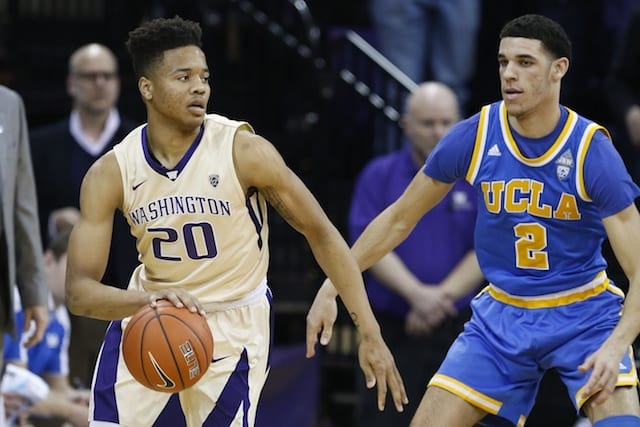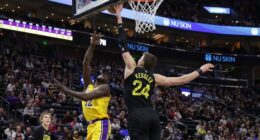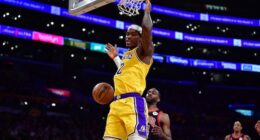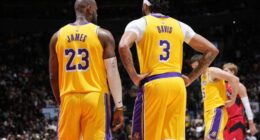The Los Angeles Lakers, just like all NBA playoff teams, knew that this year’s postseason would present a host of unusual challenges. COVID-19 necessitated the implementation of a bubble at Disney World, which meant time away from families and friends while living under strict rules to prevent the semi-isolated environment from being compromised.
Further complicating things was the suspension of the NBA season for roughly four months, leading to uncertainty about the state of team chemistry, player fitness, and the probability of injury. No fans in the stands meant that even the games themselves would feel different.
In a world craving normalcy, the revived NBA would offer none of it, and bringing home a championship would require more than simply being good at basketball. To borrow a line from the U.S. Marines, a team’s ability to improvise, adapt and overcome, would be critical to their success.
For the Lakers, this would be true both on and off the floor. As players adjusted to their new environment, they found themselves matched up with the Portland Trail Blazers in the first round, a team that would turn to a twin towers lineup; something rarely seen in the modern NBA.
Not only were the Lakers challenged to find ways to slow down high-scoring guards CJ McCollum and Damian Lillard, but they also had to decode a Blazers lineup that eventually started two centers in Jusuf Nurkic and Hassan Whiteside.
The Blazers packed the paint and dared the Lakers to beat them from outside.
After dropping the first game of the series, the Lakers worked through their initial struggles and found ways to exploit Portland. They won four straight games after some tweaks, successfully adapting to an unfamiliar challenge.
Going from one extreme to another, the small-ball obsessed Houston Rockets met the Lakers in round 2. This time, instead of dealing with an opponent that presented the size and physicality of the Blazers, the Rockets have pushed the boundaries of small ball by starting the 6’7” Robert Covington at center.
They spread the floor and surround star guards James Harden and Russell Westbrook with shooters to stretch opposing defenses to their breaking point. Once again, the Lakers dropped game one of the series and had to adjust.
All season long, centers JaVale McGee and Dwight Howard have been a big part of their success. They act as a tag team at the center position, where their ability to protect the rim and rebound has been critical.
Against the Rockets, however, McGee and Howard’s abilities on the glass were outweighed by they open threes that they gave up to shooters. Neither is used to chasing smaller players out beyond the 3-point line and while their presence on offense created some openings in the Houston defense, playing their dynamic duo became a losing proposition.
Instead, the Lakers adjusted to the new challenge by going small, using veteran Markieff Morris at center. Their defense became faster, allowing them to chase Rockets shooters off of the 3-point line and create turnovers, which led to easier offense.
Even without McGee or Howard, the Lakers still field a relatively big team, with Morris, LeBron James, Anthony Davis, Kyle Kuzma. And yet, the flexibility to deal with changing conditions has to be commended. They have taken two drastically different opponents and found ways to beat them at their own game.
So far, the Lakers have been pushed out of their comfort zone in a multitude of ways, from how they live their lives to the way they play on the court. In ever-changing circumstances, these Lakers simply continue to adapt and overcome.
Have you subscribed to our YouTube channel? It’s the best way to watch player interviews, exclusive coverage from events, participate in live shows, and more!






